As Driverless Car Race Continues, Israeli Tech Shines
Intel bought Mobileye—and its plan for safe driverless cars—for $15.3 billion, Daimler opened Israeli offices, and Alibaba invested in Nexar
11:5223.02.18
Autonomous vehicles are the technology of the future, and companies like Intel, Nvidia, Tesla, and Google are racing ahead to secure their share of the pie. Driverless cars promise benefits like less car-related deaths, less traffic congestion and pollution, better sustainability thanks to lowered fuel use, and more free time for everyone. But while the driverless inevitability is on the horizon, it’s taking a while to get there, and Israeli companies are pulling their weight in making it happen.
Following are six perspectives on our driverless future.
Paving the way towards safer roads for all. In 2017, Intel took a big step forward in the race when it bought Jerusalem-headquartered Mobileye, a developer and manufacturer of automotive chips and car sensor systems. Mobileye co-founder and CEO Amnon Shashua explained the company’s model for safe driverless cars. Read more
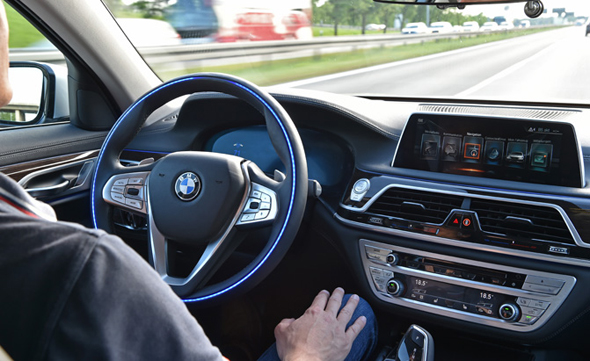
Autonomous vehicles. Photo: AutoGuideצילום: AutoGuide
Intel’s lobbying power essential for driverless car push, says Mobileye CEO. Mobileye aims for the serial production of an autonomous car by 2021. To get there it needs to overcome both technology and regulation challenges, and that’s where Intel comes in. Read more
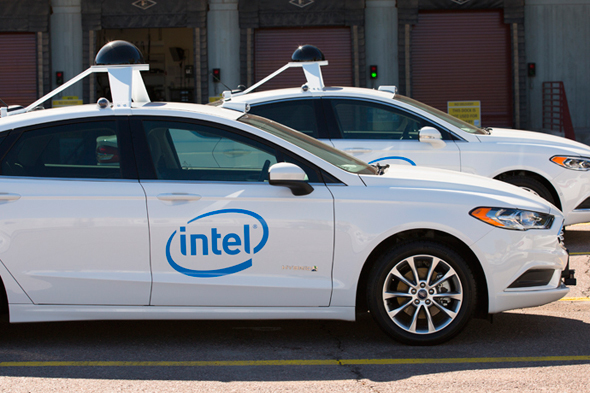
Autonomous vehicles. Photo: Intel newsroomצילום: Intel Newsroom
Daimler’s chairman sees swarms of robo-taxis coming. The Germany-based automaker opened a Mercedes-Benz research and development center in Tel Aviv in late 2017. Chairman Dieter Zetsche outlined the company’s vision for the future of automotive transportation. Read more
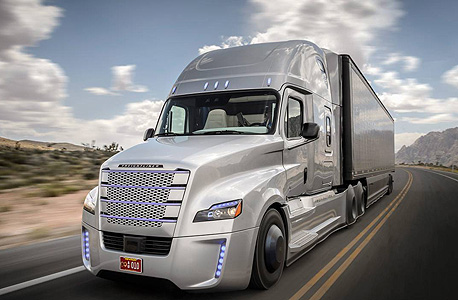
A Daimler driverless truck. Photo: Daimler A.G.צילום: אתר החברה
Buckle up. Transportation will completely change—in 40 years. Despite the hype and Tesla’s best efforts, it will not take 10 or 20 years, and definitely not five, for autonomous vehicles to replace human drivers across the world. 10 years from now, yes, some people will be riding around in autonomous vehicles, in some cities and some regions, but it will take a lot longer to complete this transition. Read more
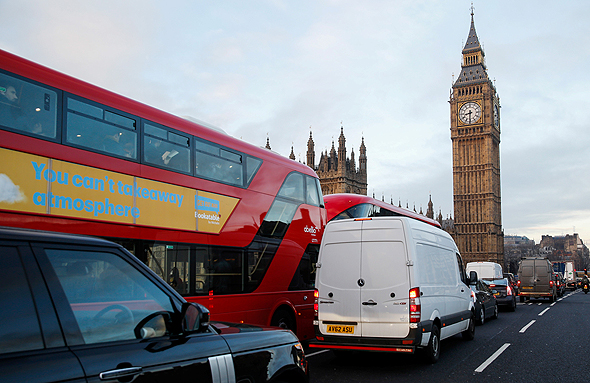
Traffic jam, London. Photo: Bloombergצילום: בלומברג
Alibaba backs Israeli auto machine vision startup Nexar. Founded in 2015 and headquartered in Tel Aviv, with additional offices in New York, San Francisco, and Las Vegas, Nexar develops machine vision-based tools designed to collect data and make driving safer. The company launched a free dashcam application in 2016, which connects to a vehicle-to-vehicle network. Since then, drivers in 740 cities across 160 countries have covered more than 100 million miles while generating user-data through the Nexar app. Read more
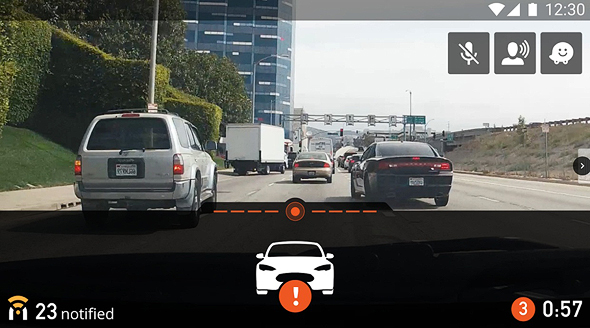
Nexar's tech. Photo: Nexar
Bosch sees crypto micropayments between autonomous cars in its future. The tier one auto parts maker invested in cryptocurrencies in December 2017, becoming one of the few multinational companies to openly do so. This 131-year old industrial firm is betting on distributed ledgers as it transforms itself into a data monetization company, according to Tal Dekel, Bosch’s senior technology scout in Israel. Read more

Autonomous driving (Illustrative). Photo: Shutterstockצילום: שאטרסטוק



